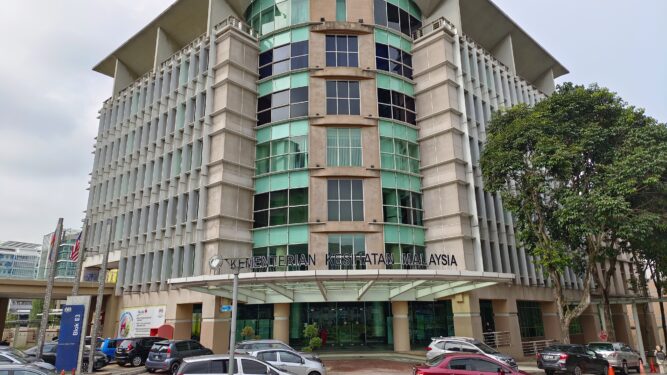IT is really frustrating and saddening that our public health service is in such a dire state in spite of the tremendous sacrifices and protracted long hours that our medical professionals and allied staff have endured since time immemorial.
The perennial problems and issues plaguing our public health service need urgent and immediate diagnosis, prognosis, treatment, and attention; failing which, we are surely on the brink of collapse.
The Health Ministry (MOH) needs to make a comprehensive study to get to the root of the problems and institute sustainable solutions. The Public Services Department (PSD) and the Finance Ministry must give their full support and assistance to overcome the problems as they affect the public at large.
Day in and day out, since the last two decades, our newspapers, both print and electronic, have been deluged with news reports and letters from the general public highlighting the plight of our medical professionals, dilapidated facilities and equipment, and long and unending queues.
The MOH director general (DG) has time and again expressed his frustrations with inadequate funding and the hurdles and obstacles they face.
The DG has expressed countless times that “we are currently understaffed, underpaid, overstretched, and with facilities overcrowded with patients.”
Does anyone hear his frustrations and impassioned pleas? Can we give him a break before he goes on mandatory retirement in April this year?
The problems faced by our MOH range from placement for newly graduated medical professionals, contracts of service for those who have completed their internships, a lack of specialists, and an inadequate and poor state of facilities and equipment.
In November 2021, the then-health minister Khairy Jamaluddin reported at the Dewan Negara that Malaysia needs 28,000 specialists in various medical disciplines to address the acute shortage, which is the reason behind the long waiting times to see specialists.
Currently, graduates of our local Master’s programme undergo a six-month gazettement period, and those who obtained their specialist qualifications from the UK, Scotland, or Ireland undergo an 18-month gazettement period under the consultants of their specialty before they are regarded as full-fledged specialists.
Is it not possible to shorten the period of gazettement for those who obtained their specialist qualifications outside of the country?
After all, they would have served more than five years in their specialty as a senior medical officer, and they would have had adequate experience, training, and exposure.
The other problem is that some of the heads of departments and service heads take ages to sign off their logbooks which is a prerequisite to applying for gazettement, thus further delaying and frustrating these graduate specialists.
This is definitely not in line with the Hippocratic Oath, which mandates the supervisors treat their juniors as their “offspring” and accord them due respect, dignity, and fairness.
To quote a part of the Oath :
to reckon him who taught me this Art equally dear to me as my parents, to share my substance with him, and relieve his necessities if required; to look upon his offspring in the same footing as my own brothers, and to teach them this Art, if they shall wish to learn it, without fee or stipulation; and that by precept, lecture, and every other mode of instruction, I will impart a knowledge of the Art to my own sons, and those of my teachers, and to disciples bound by a stipulation and oath according to the law of medicine, but to none others.
This attitude and behaviour of these departmental and service heads are also not in sync with the fundamental and basic tenets of Malaysia Madani which calls upon us to be mindful, empathic, fair, just, kind, considerate, and human.
As a human resources specialist, it is my professional view that the MOH human resource (HR) division has failed miserably in carrying out the function of manpower planning.
Manpower planning must take into account projections on manpower requirements for new and future facilities and attrition statistics, which include deaths, retirements, resignations, transfers, and promotions based on historical data and trends.
The reason for this failure, to my mind, can be attributed to the fact that those who are heading the HR function of ministries, departments, and even the PSD are rarely those who have any HR credentials and competencies.
The vast majority, if not all of them, are from the administrative and diplomatic (PTD) services with diverse qualifications.
I sincerely and fervently hope and pray that the new MOH Minister, DG, and Secretary General would give serious and immediate attention to the matters raised in this letter and institute immediate and urgent, proactive, and corrective actions, as well as put in place preventive measures to stop the rot and further deterioration of our public health services, which are currently terminally ill in spite of the extremely commendable and herculean performance in fighting the COVID-19 pandemic.
Let us not rest on our laurels, lest the public continue to be victims and endure continued suffering. — Jan 25, 2023
Roslan Sharif
Bangi
Bangi
The views expressed are solely of the author and do not necessarily reflect those of Focus Malaysia.










